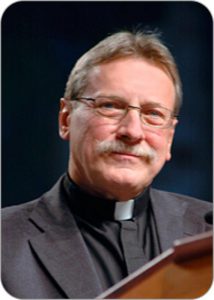
FROM THE PASTOR
There is No Short Cut
Seventeen years ago, Amadou Diallo was killed in a hail of forty-one bullets from police guns in the Soundview section of the South Bronx, holding a wallet, not a gun, in his hand. Bruce Springsteen wrote a song about it, “41 shots…American Skin.” When I wrote an editorial about it, it got me in a lot of trouble. I said that if Amadou had been my son (one of my sons was Amadou’s age), he would still be alive. I called on public and religious leaders to admit that we have a racial problem in our community and that we needed to find the resolve to face it together.
Some who disagreed with my remarks threatened to boycott my previously planned visit to a congregation on Long Island whose membership included many New York City police officers and their families. I asked the pastor to read a letter to the congregation the week before my visit in which I asked them to welcome me as a brother in Christ and as their bishop, and I promised to stay at the coffee hour until the last person said what they had to say. The church was packed for my visit. The congregation was incredibly gracious and hospitable, but there was no way around facing the anger. I stayed a long time. I faced people who took from my public statements that I was accusing the police of racism and murder. There were primal screams from police wives whose husbands had been shot in the line of duty. But we listened and we stayed in the conversation. They heard from me that during my twenty years of parish ministry I was a police chaplain, and that the cries of mothers whose children were shot by police were remarkably similar to theirs.
I learned from this encounter in the Body of Christ that there is no short cut to engaging one another, to facing our history in this country, especially our original sin of slavery and racism. The public furor, demonstrations, arrests, the acquittal of those who shot Amadou, the ensuing anger, grief and communal helplessness presaged Ferguson, Baltimore, Charlestown, Dallas, Baton Rouge, Minneapolis, Kenosha and so many other confrontations between police and minorities today.
Brenda Smith, a member of my staff at the ELCA Domestic Mission Unit (Director for Evangelism), but then a pastor in an African American congregation and community in Queens, New York, recently looked back on her time there and said, “We will never get anywhere, we won’t settle this, if we don’t see each other’s humanity.” Her congregation reached out to their local precinct as they had been doing long before Amadou was shot. They baked and delivered cookies to the precinct before and after the death of Amadou. We persuaded Attorney General Elliott Spitzer to convene a meeting in her church between police and young African American males tired being profiled. There is no substitute or short cut for the hard work of bringing people together at the table. Peace and reconciliation require a long game.
I know that racial justice has been a passion, ministry, and hope for many in our congregation and the congregations of our Lakeview Lutheran Parish. It is becoming, every day, a more integral part of our public mission in the world. Advocacy, organizing, deep conversations and listening with others-with whom we agree and disagree-around issues of racial justice are part of God’s reconciling mission in the world. As we remember the life and legacy of Dr. Martin Luther King, Jr. this coming Sunday, may all of us hope, pray, and work for God’s vision of perfect justice and beloved community in the world for which christ died.
Pastor Stephen Paul Bouman

